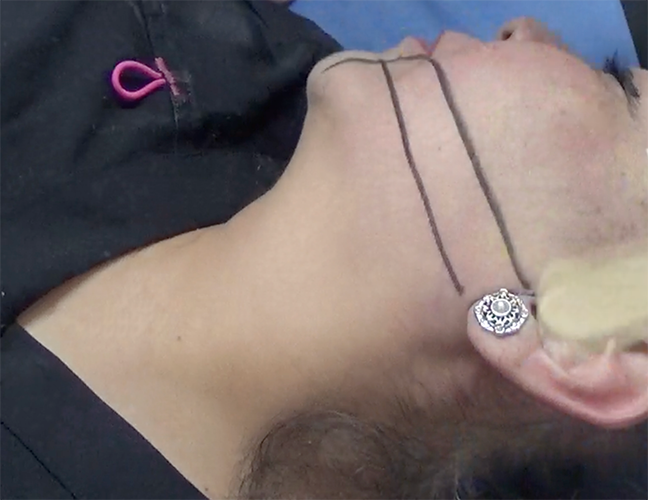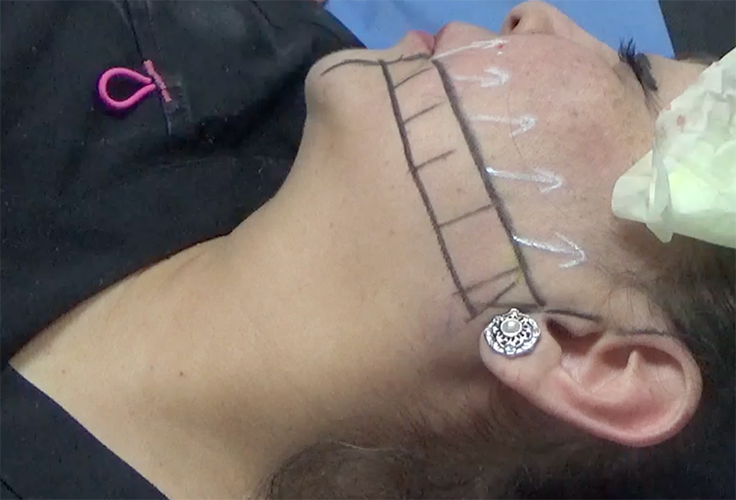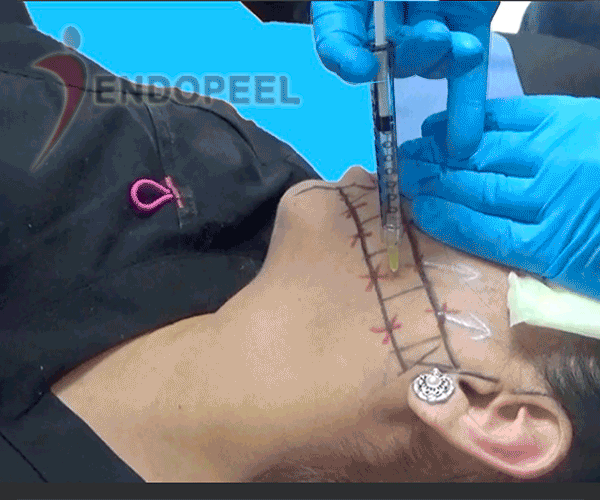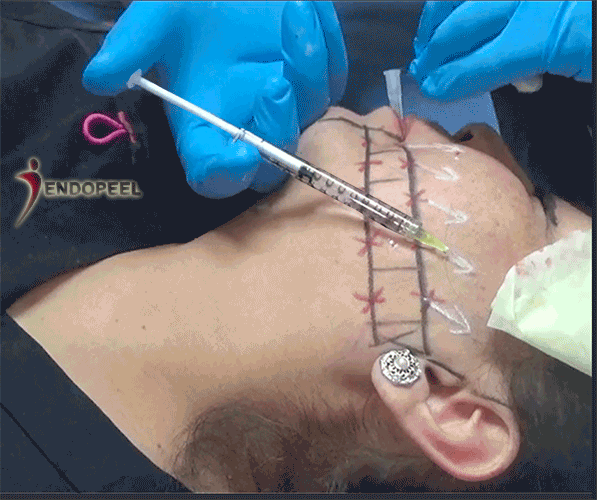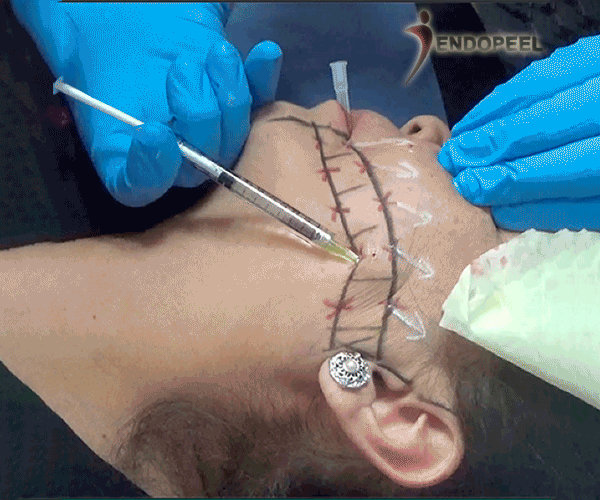Lower Third-Local Technique

Step 0
Marking Vectors & Tensors

Step2 :Internal limit of the area to treat (supramandibular lower third)
marking a vertical line beginning from the external labial commissure
The internal limit of the supramandibular lower third to treat is determinated by a vertical line beginning from the external labial commissure and ending at the mandible.

Step 5 Marking the lower limit of the supramandibular area
Lower Limit of the SupraMandibular Area of the Lower Third
- you need to take a wooden tonguer and place the middle of its length on the maximum convexity of the mandible.
- Then the upper edge of the wooden tonguer corresponds exactly to the lower limit of the supramandibular area.
- We chose this trick to avoid injections in the periosteum of the mandible which may cause ecchymosis .






